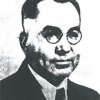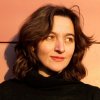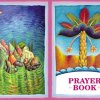Похађао је учитељску школу у Сомбору, Пакрацу и Осијеку, где је дипломирао. Студирао је експерименталну психологију и педагогију у Бечу, Јени и Цириху. Докторат из експерименталне психологије стекао је у Цириху код психолога Мојмана (Напредовање заборављања с временом, 1904).
.Потом је неколико година радио као учитељ и непуну школску годину као професор психологије и педагогије у Учитељској школи у Сомбору. Поред тога што је био доктор наука, није добио место на Универзитету у Београду јер га, као психолога и педагога експерименталне оријентације, нису прихватали педагози традиционалне хербартовске усмерености.
У САД, на Њујоршком универзитету, студирао је експерименталну педагогију а потом одбранио другу докторску дисертацију (Утицаји садржине речи на примарно памћење, 1908). Годину дана радио је као асистент за психологију на Станфорд универзитету у Калифорнији и упоредо студирао медицину. Када се убрзо вратио на Педагошки факултет Њујоршког универзитета, изабран је за доцента (1910), потом ванредног (1913) и редовног (1915) професора експерименталне психологије, педагогије и педагошке антропологије. На овом универзитету остао је до одласка у пензију 1945. Више пута је долазио у Југославију и држао предавања и семинаре за учитеље и наставнике.
Написао је преко хиљаду радова (монографије, уџбеници и чланци) објављених на српском, енглеском, немачком, руском и другим језицима. Професор Радосављевић је остварио резултате трајне вредности у подручју експерименталне психологије, посебно у проучавању законитости памћења и заборављања. Својим уџбеницима из експерименталне психологије и педагогије допринео је потпунијем заснивању ових научних области, као и стручном усавршавању учитеља и наставника. И из области културне историје, етнопсихологије и педагошке антропологије написао је изузетно вредна дела. Обимним истраживачким и публицистичким радом може се свр-стати у најплодније психологе у свету. Сматра се једним од пионира експерименталне психологије и педагогије. Залагао се за методолошку егзактност у истраживању у психологији и педагогији по угледу на природне науке, за експериментално проучавање психичких појава и васпитне праксе, за објективно проучавање, те је по психолошкој усмерености био близак, а у извесном смислу и претходио, бихејвиористичкој оријентацији у психологији и педагошкој теорији и пракси.
Међу главним делима професора Радосављевића су: Увод у експерименталну психологију, I-II (1908-1909), Психологија за учитеље свију школа (1908), Нацрт опће педагогије за учитеље (1910), Увод у експерименталну педагогију, I-II (1910-1912), Pedagogical Antropology in USA (1917), Who are the Slaves? A Contribution to Race Psychology (1919), Позитивистичка педагогија Огиста Конта (1920).
- Литература: Ј. Искруљев, Др Паја Радосављевић, Житот и рад, Београд 1971.






